Michelle Carter pushed Conrad Roy to suicide via text. Now his family fear Hulu show will defend her deadly words
In 2014, 18-year-old Conrad Roy III died by suicide. His phone soon revealed texts from 17-year-old Michelle Carter urging him to take his own life. Eight years on, the victim’s family is worried that new Hulu series ‘The Girl from Plainville’ may defend her ‘evil actions’. Rachel Sharp reports

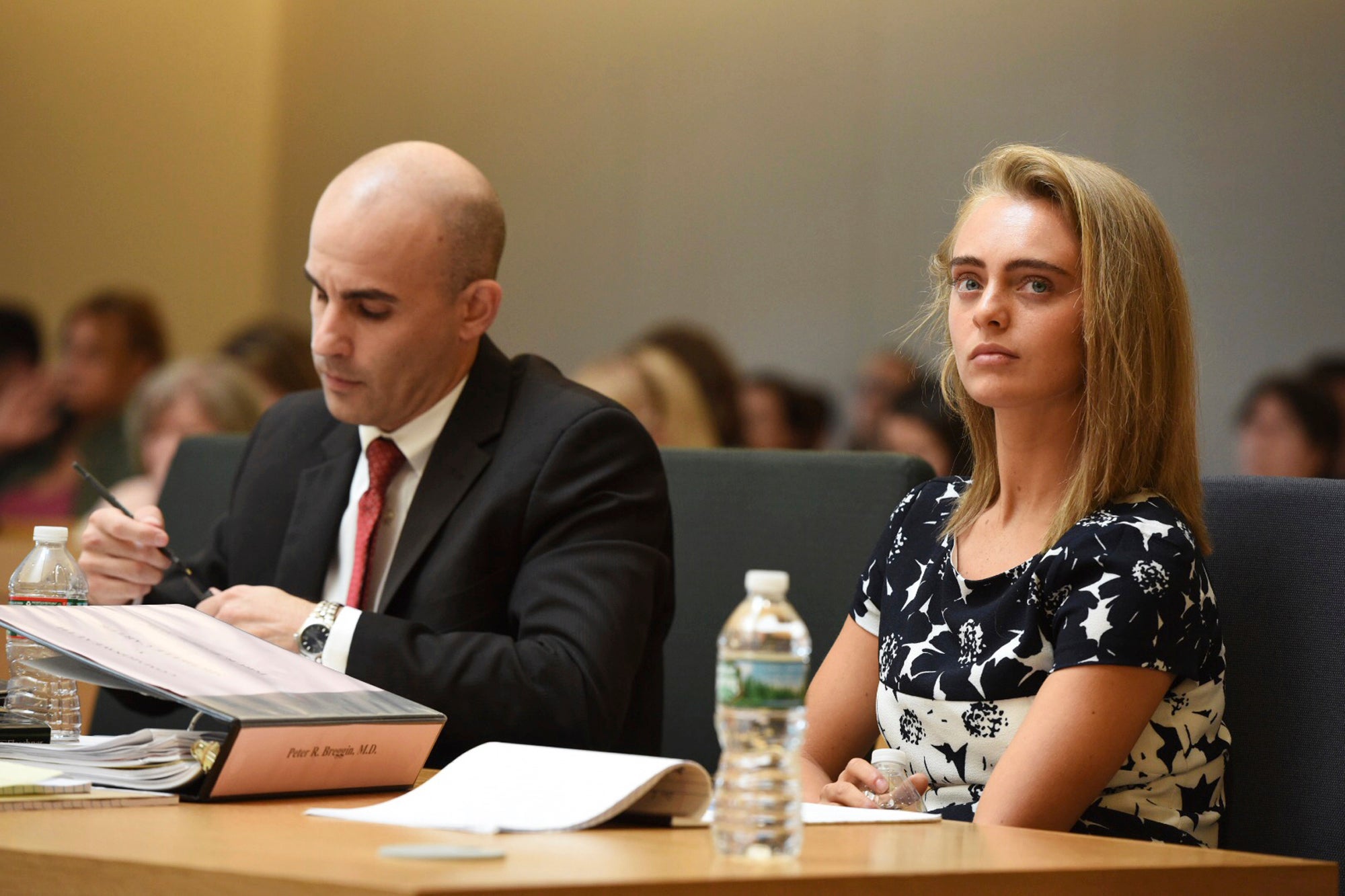
“Why don’t you just drink bleach?”
“You’re just making it harder on yourself by pushing it off, you just have to do it.”
“You better not be bulls**tting me and saying you’re gonna do this and then purposely get caught.”
These were just some of the 1,000-plus text messages sent by 17-year-old Michelle Carter to her 18-year-old boyfriend Conrad Roy III in the week leading up to his suicide in the summer of 2014.
In the messages, Carter encouraged Roy to take his own life, pushing him to go through with it when he wavered and suggesting different methods for him to carry it out.
The texts were later discovered by investigators and, in an unprecedented trial that hit headlines across the country, Carter was found guilty of involuntary manslaughter in 2017.
The infamous texting-suicide case is now the focus of the new Hulu series The Girl From Plainville, which was released on 29 March.
The series, coming almost eight years after Roy’s death, is something of a concern for the victim’s family.
Carter in a ‘different light’
Roy’s mother Lynn St. Denis previously told The Independent in a message that, aside from being able to speak to the actor playing the role of her son and having “a few short discussions” with the production team, the family had been kept largely “in the dark” about the show and were denied advance access to the script.
In an interview with People magazine last week, she also voiced concerns that the series will focus more on Carter than on her son and that “there may be an attempt to defend some of her needless and evil actions”.
Elle Fanning, who stars as Carter in the eight-part series, has spoken out about wanting to cast “a different light” on the tragic events and to show the nuances of what happened rather than portraying Carter as the “black widow manipulator”.
“For us, it was looking at the case in a different light and in a more of an unbiased way,” she told Good Morning America last week.
“Everyone definitely had an opinion about this case. It definitely shocked the nation and we wanted to dig deeper and look at more sides to it.”
She added: “To play a character, especially a real person, obviously you want to approach this story with sensitivity.
“I felt a great deal of responsibility because obviously these people, they are still alive and a life was lost. But at the same time, I am playing a character and you can’t judge a character that you play.
“You don’t have to agree with the decisions they made or necessarily like them but I think I have to come at it with an understanding.”
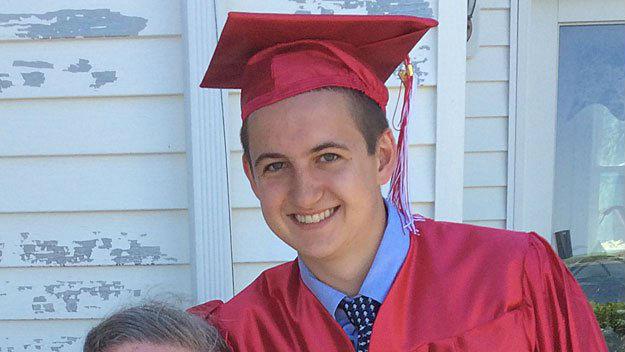
The concerns raised by Roy’s family are understandable, according to Meg Garvin, executive director of the National Crime Victim Law Institute.
She tells The Independent that it can be “absolutely horrific” for victims of crimes to have to relive the tragedies they have gone through on the screen.
“It can be absolutely horrific for a victim to once again have their power taken away by someone else telling the story of what happened to them,” she says.
“One of ways to recover from trauma is to have power over one’s own narrative and when what is essentially a fictionalised version comes out or a version that includes everyone’s but your voice you’ve basically lost control of the narrative again and that creates that trauma all over again.”
Typically, when people set out to “retell a story and give it a different angle, you are really risking undermining the story of what happened to the victims,” she warns.
When wanting to retell someone’s tragic story, Ms Garvin says there are three things show creators should do: ask permission to tell the story, create as much space as possible for the victims to have a voice and give them a chance to see it before its release “so they are not blindsided and can take steps for self-protection”.
Whatever the angle, the message here should be that “this should not happen to humans” and so the book ends of the story should include signposting to resources for people affected by the storyline, she says.
Hulu and the team behind The Girl from Plainville did not return requests for comment by the time of publication.
However, the show’s creators are known to have consulted the American Foundation for Suicide Prevention for advice over the portrayal of suicide in the show during its creation.
Ms Fanning told GMA that they were careful not to romanticise Roy’s death.
“We were careful not to sensationalize this story. It would have been easy with our show to kind of romanticise suicide,” she said.
When texting leads to death
Roy was found dead in his car in the parking lot of a Kmart store in Fairhaven, Massachusetts on 13 July 2014.
While the teenager had a history of depression and anxiety, his death didn’t make sense to his grieving parents.
Just hours earlier on 12 July, he had gone for a walk on a Massachusetts beach with his mother and they had chatted about his plans for the future.
She told People that her son had just been accepted to Fitchburg State University and had also just earned his sea captain’s licence to work in marine towing and salvage along with his father Conrad Roy Jr.
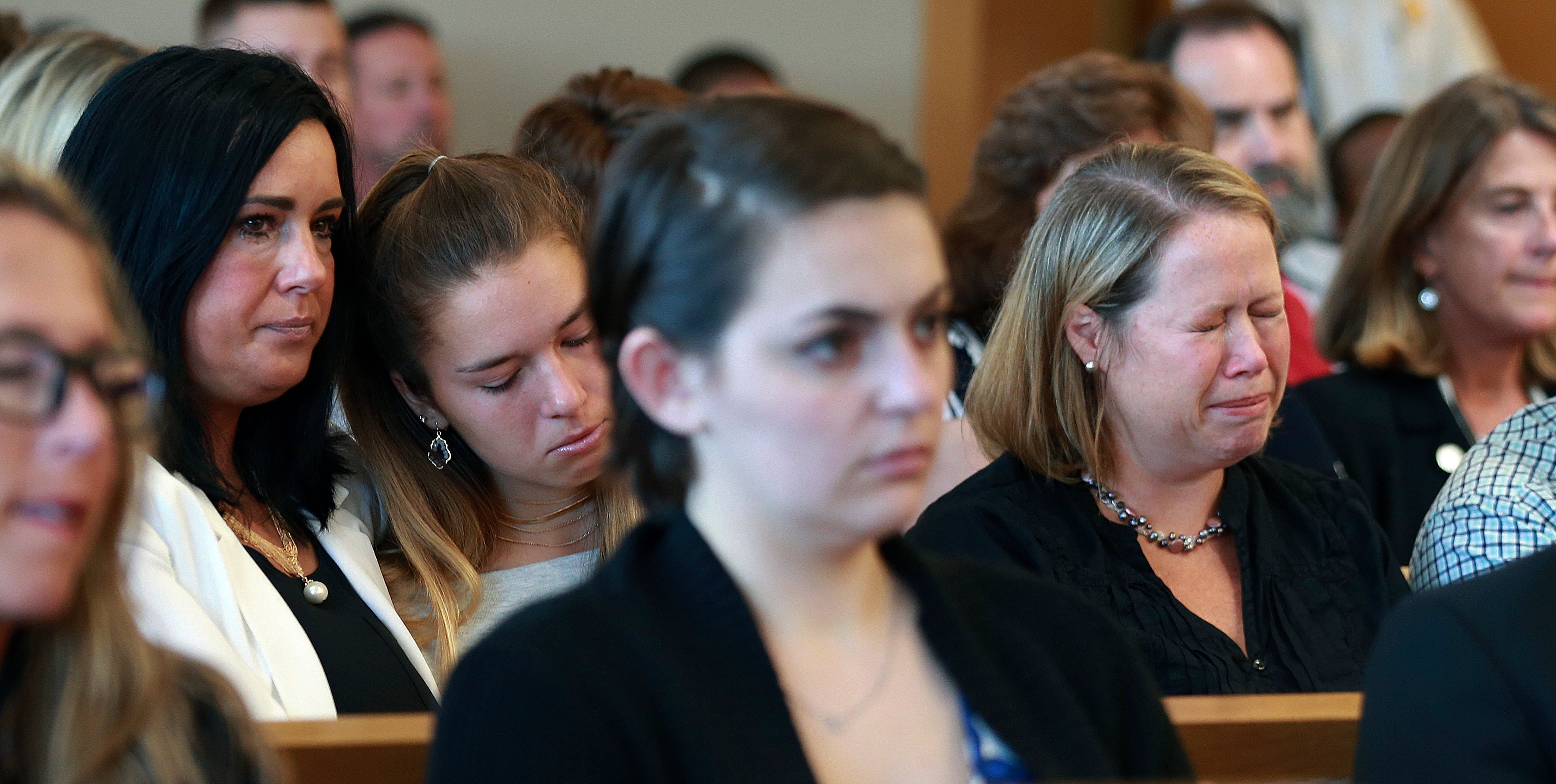
The 18-year-old was mulling which path to take and she had reassured him that “you don’t have to make that decision now”.
During their walk, she said her son disrupted their chat at one point to go to sit in the car.
She presumed he was checking his phone but did not think about the gravity of that moment until Carter’s messages came to light later.
Later that day, Roy then took his two younger sisters to get ice cream and then chatted to his mother again while she washed the dishes in their house.
Text messages revealed in court later showed that, during the teen’s final hours with his family, Carter was telling him “it’s time” to end his life.
Roy then walked out of his family home that evening, saying goodbye to his mother for the last time.
His unremarkable goodbye still doesn’t make sense to Ms St. Denis.
“Why didn’t he give me a hug if he knew he was never going to see me again?” she asked.
At the time of his death, the family knew little of Carter - knowing her just as a girl he had met years ago and sometimes messaged.
Carter and Roy met in February 2012 when they were both on holiday in Naples, Florida.
She was visiting her grandparents while he was visiting his great-aunt who lived in the same street.
When they both returned to their respective Massachusetts homes - Roy to the harbour town of Mattapoisett and Carter to the suburb of Plainville, around an hour north - they only ever saw each other about five times in person again.
But their relationship continued and grew intense through thousands of texts and Facebook messages.
Both teenagers struggled with mental illness. Carter suffered from anorexia and was at one stage admitted to a psychiatric hospital.
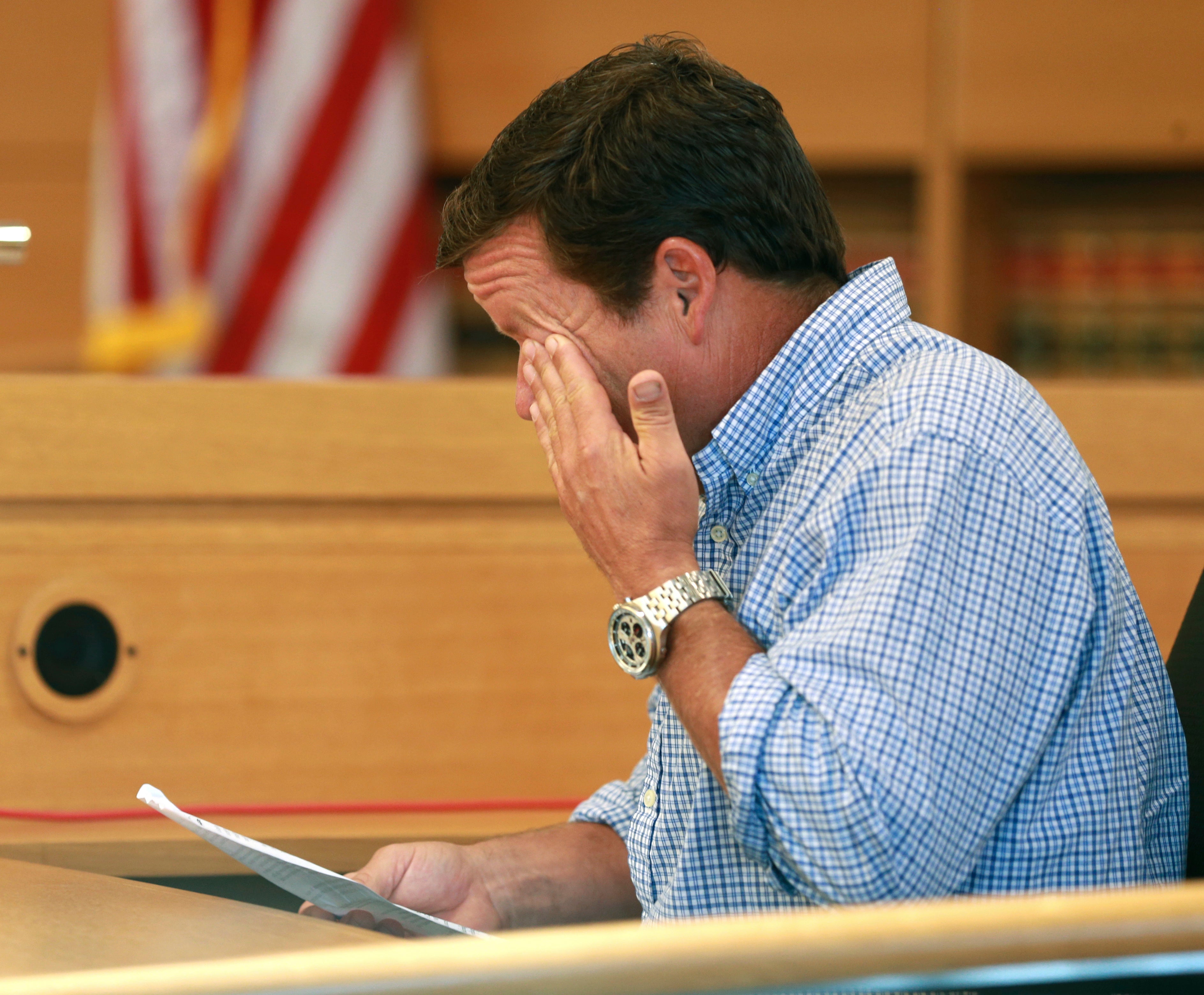
Roy suffered from depression and anxiety and had made another attempt on his life one year earlier.
Text messages gathered by prosecutors from Roy’s phone showed that, when Roy first spoke about suicide, Carter had urged him not to.
Then, two weeks before Roy’s death, the texts reveal Carter began urging him to do it and suggesting various methods.
“What about hanging yourself or stabbing yourself?” read one message on 29 June.
Four days later, Roy told her he was going to take his own life that day.
When he didn’t, prosecutors said her texts showed her anger at him backing out.
“YOU KEEP PUSHING IT OFF!” she wrote.
On the day of his death, Carter sent a series of messages urging him “you just have to go it” and questioning “why haven’t you done it yet tho?”
“You keep pushing it off and you say you’ll do it but u never do. Its always gonna be that way if u don’t take action,” she said in one text.
“I thought you wanted to do this. The time is right and you’re ready, you just need to do it! You can’t keep living this way. You just need to do it like you did last time and not think about it and just do it babe. You can’t keep doing this everyday,” she wrote in another.
That evening, Roy drove his truck to a parking lot and poisoned himself with carbon monoxide.
Phone records showed that Roy spoke to Carter twice on the phone as he sat in his car.
The first call lasted over 42 minutes. The second 46 minutes.
Prosecutors said that Roy died during the second call.
Carter later told a friend about the phone calls saying that Roy had gotten out of the car to escape the fumes at one point but that she had told him to get back inside.
“I could have stopped him. I was on the phone with him and he got out of the car because it was working and he got scared and I f***ing told him to get back in. I could of stopped him but I f***ing didnt. All I had to say was I love you,” she said in a text.
When investigators found the text messages in Roy’s phone, Carter was charged with involuntary manslaughter.
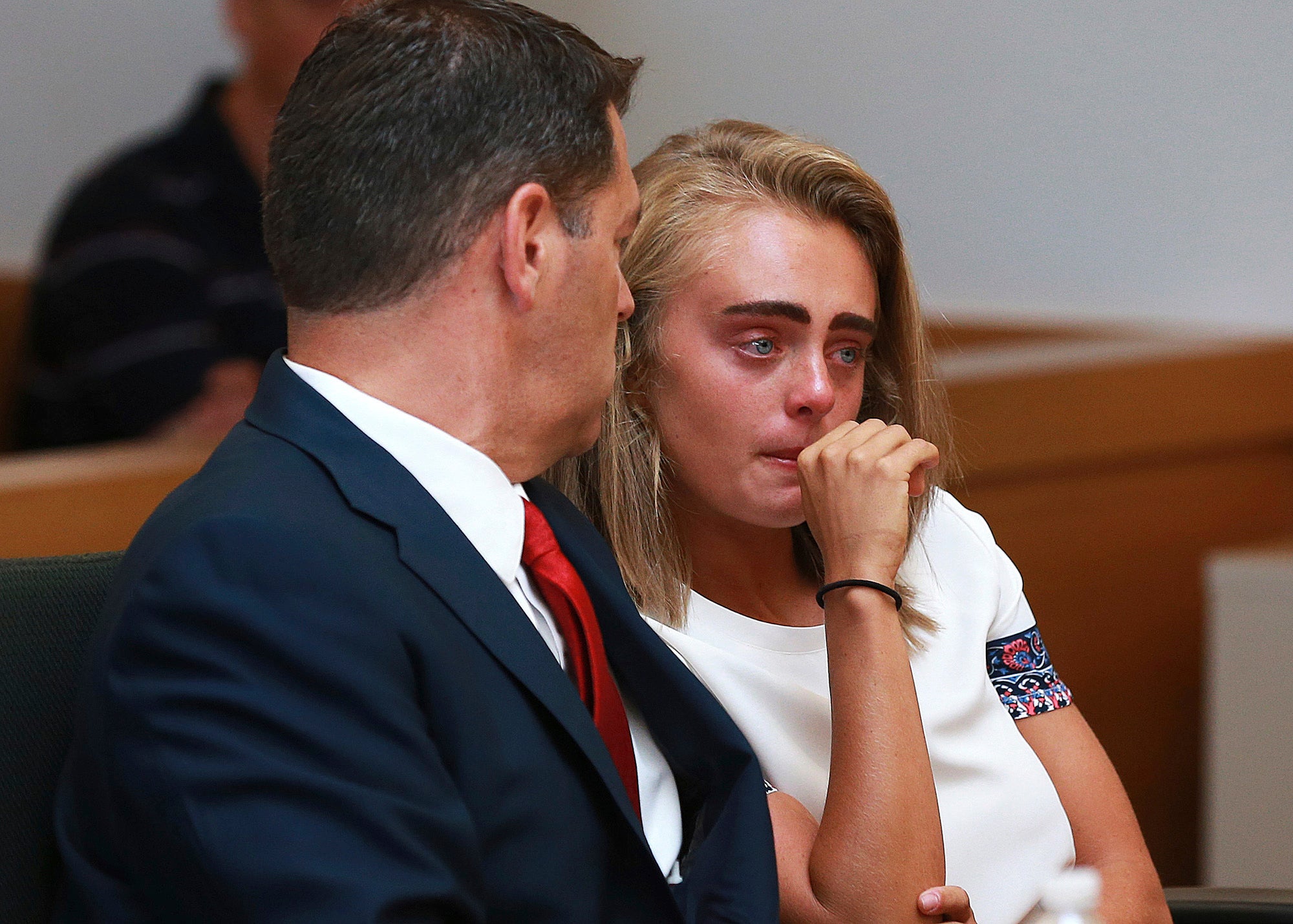
The case captured the nation, as a baby-faced teen stood trial accused of causing the death of another young person from several miles away through her words alone.
The text messages - and the phone calls - were central to the trial. In total, 317 pages of messages were gathered as evidence by the state.
In 2017, the judge found Carter guilty of involuntary manslaughter because of the final phone call where she ordered him back into his truck and then failed to make attempts to get him help.
“Whether Conrad would have taken his life at another time does not control or even inform this court’s decision,” the judge said.
While the homicide charge has a maximum sentence of 20 years in prison, Carter was sentenced to just 15 months.
She was released after serving 11 months for good behaviour in January 2020 and is still on probation.
Looking forward with ‘Conrad’s Law’
Roy’s mother told People she was “satisfied” to see Carter convicted and was “surprised that she even got 11 months”.
“I mean, there were people screaming, ‘She should get 20 years, she should get life, she should die’. I wasn’t the typical mother screaming on the news channel, ‘I want justice.’ Even if I showed up every day, or I didn’t show up at all, it wouldn’t have mattered. I just knew that it was in God’s hands, and it was in the law’s hands,” she said.
Instead, Ms St. Denis has been working since her son’s death to prevent other parents and families from going through what she has.
The charging and conviction of Carter over Roy’s death was controversial and took a long time to pass through the courts because Massachusetts does not currently have a law criminalising suicide coercion.
It is one of only eight US states without such a law.
That’s why Ms St. Denis has put forward “Conrad’s Law”.
Backed by lawmakers including state Senator Barry Finegold, if introduced, people face up to five years in prison for coercing someone to take their own life.
Ms St. Denis told People that she hopes the renewed attention on the case from the Hulu documentary will help the law pass - something that would be “a win” for both her and for her son.
“With this tragedy, my son would want me to help other people, other families,” she said.
“If we get the law passed - when we do - that’s going to be a win for me, for him. I just want my son to be proud of me.”
She added: “I don’t want another family to deal with what I had to deal with.”
If you are experiencing feelings of distress and isolation, or are struggling to cope, The Samaritans offers support; you can speak to someone for free over the phone, in confidence, on 116 123 (UK and ROI), email jo@samaritans.org, or visit the Samaritans website to find details of your nearest branch.
If you are based in the USA, and you or someone you know needs mental health assistance right now, call National Suicide Prevention Helpline on 1-800-273-TALK (8255). The Helpline is a free, confidential crisis hotline that is available to everyone 24 hours a day, seven days a week.
If you are in another country, you can go to www.befrienders.org to find a helpline near you.




